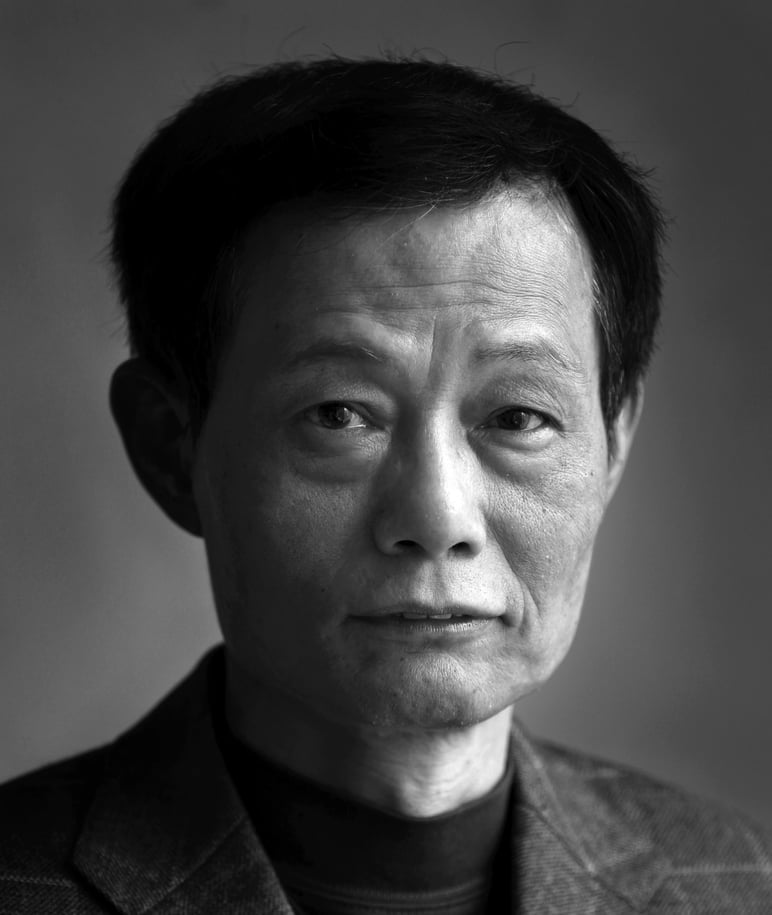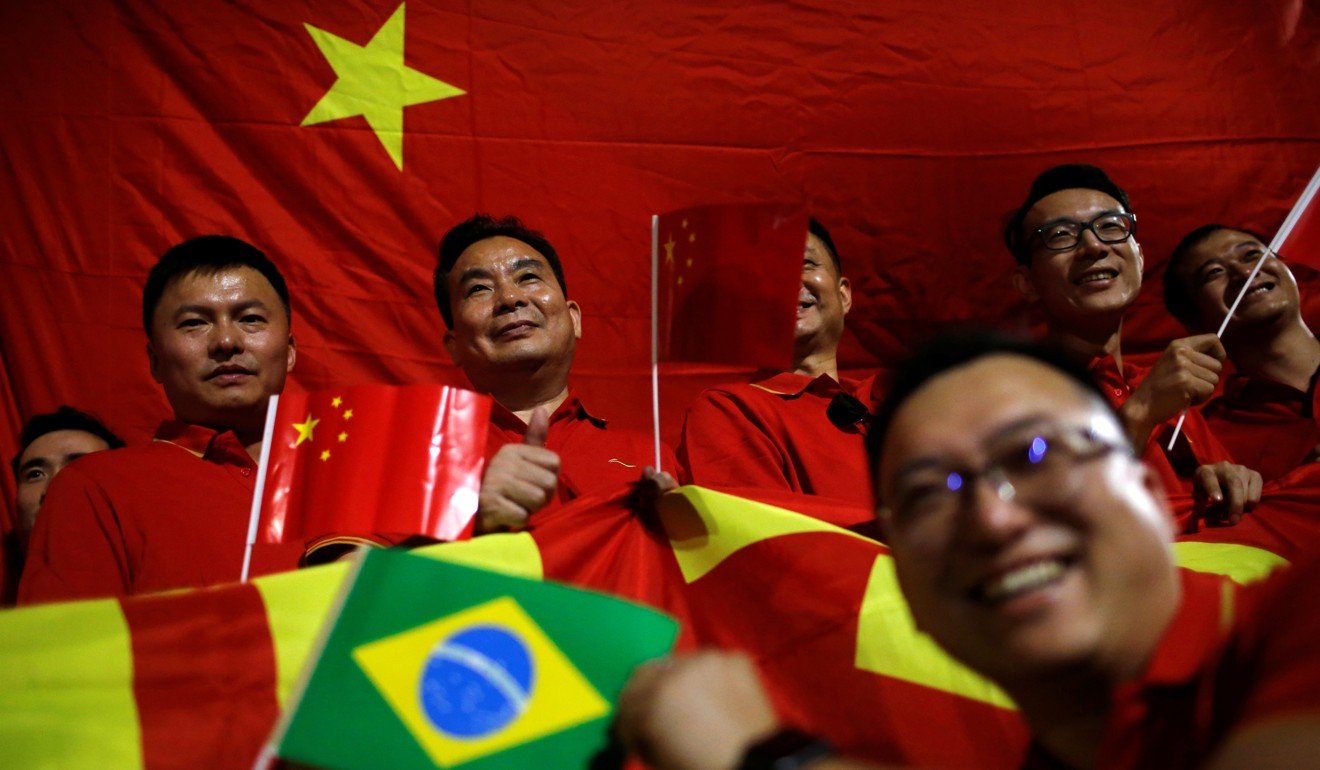
The China-Russia challenge to the US-led West has hit a BRICS wall
- With economic woes hitting all members of the bloc bar India, some are questioning its relevance
- Even among members, Beijing and Moscow’s attempts to switch focus to geopolitics is sowing division
Since 2001, when the Goldman Sachs economist Jim O’Neill coined the acronym, the bloc’s combined share of the world economy has jumped from just eight per cent of global GDP to about a quarter.
As the bloc accounts for some 40 per cent of the world’s population and about 25 per cent of its land, the impressive growth has contributed to economic globalisation.
And with intra-BRICS trade making up just 15 per cent of the global total, the five economies also have the potential to deepen integration.
The growth of China’s economy, which is twice as large as all the other four put together, has been decelerating steadily over the past decade, from its peak of 14.23 per cent in 2007 to 6.6 per cent last year. And a low of 6 per cent quarterly growth in the July-September period suggests the world’s second-largest economy is likely to dip beneath its 6 per cent benchmark in the final quarter of this year and in 2020. China’s woes aren’t just that growth has slowed per se, but also about how long the slowdown will continue. So far, it has shown no sign of stopping.
Meanwhile, Russia last year registered 2.3 per cent growth in GDP; Brazil, 1.1 per cent; and South Africa, only 0.8 per cent.
Only India has bucked the BRICS trend, priding itself as the world’s fastest-growing major economy with a robust 7 per cent growth last year.
Stumbling bloc: Influence of the BRICS isn’t building, it’s crumbling
Such figures leave a question mark over O’Neill’s original prediction that the bloc would overtake the G7’s collective economic output by 2035 and eclipse the combined economies of the current richest countries by 2050.
They also raise doubts over whether the BRICS can leapfrog these two groups at all, if China’s slowdown persists. The common view has been that the last two decades were China’s, the next two will be India’s. But India will struggle to replicate China’s role in driving global growth, at least in the short term, because of its much smaller size – its economy, with a GDP of less than US$3 trillion, is less than a quarter of the size of China’s, with a GDP of more than US$13 trillion.

O’Neill himself says the group has lost relevance because of the diverging long-term growth trajectories of its members. Last month, S&P Global Ratings went even further, saying the BRICS “may no longer make sense as a coherent economic grouping”.
Yet the BRICS are about more than economics. The group has also been about political and strategic cooperation – something that has given rise to US fears that it could become an anti-Western group.
These fears derive in part from the fact that it is China and Russia that have done the most to develop and sustain the BRICS forum.
Beijing and Moscow share a strategic objective in keeping the US in check in the unipolar world that followed the collapse of the Soviet Union in 1991.
Why did China invite Thailand to BRICS party? Clue: its sleeper hit of an economy
As scepticism has grown over the relevance of the group as an economic club, Beijing and Moscow appear to have switched the focus to geopolitics, calling on other members to cooperate in politics, diplomacy and security. Beijing has also found the BRICS to be a useful forum to promote its global economic agenda.
It is clear that members of this geographically and politically diverse group find some value in staying with the bloc. For instance, member states see the creation of the China-funded New Development Bank as a welcome alternative to the Bretton Woods institutions, the World Bank and International Monetary Fund.
Even so, there are very real internal contradictions between the BRICS members and these are not easily overcome due to differences in politics and ideologies. The BRICS are also deeply divided by different priorities and interests due to their diverging strategic and geopolitical goals.

This effort has met strong opposition from China and Russia. This is because a semi-alliance between China and Russia sees India as a strategic rival and has been alarmed at New Delhi’s move to join Japan, Australia and various Western democracies in Washington’s Indo-Pacific Strategy.
India meanwhile cites the economic threat from China as a reason behind its recent decision to withdraw from the Asian trading bloc known as the Regional Comprehensive Economic Partnership.
Jair Bolsonaro, the Brazilian president who this month hosted the latest BRICS summit, has made no secret of his distrust of Beijing and once questioned whether BRICS membership made sense for his country.
China, US, India ill-prepared for disruptions to global economy: new report
The emerging strategic partnership between China and Russia may have strengthened their ability to shape the BRICS agenda, but it may also be causing repercussions within the group.
It has triggered suspicions and distrust from the other three, less powerful, members and is therefore harmful to the group’s original aspirations and visions.
While it may be one of the most important non-Western global initiatives of the post-cold war period, the BRICS bloc remains far from constituting a real challenge to the decades-long dominance of the US-led West. The hard truth is that the BRICS countries have prioritised their relations with the US and European Union over those with fellow members of their own bloc.
Perhaps the most remarkable achievement about the BRICS forum in Brasilia this month is that it took place at all.
After all, this is a marriage entering its second decade. It requires hard work and dedication from all its partners if it is to prove fruitful. Instead, it appears to be hitting a brick wall. ■
Cary Huang is a veteran China affairs columnist, having written on the topic since the early 1990s

